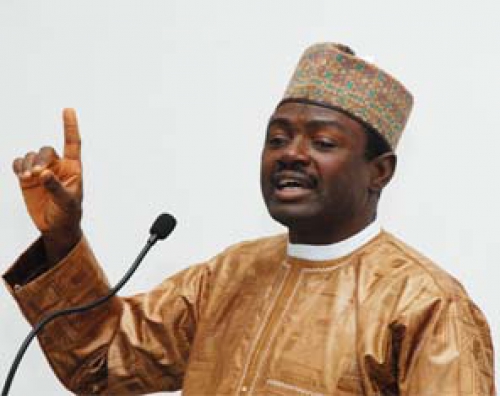Ebola: FG warns against stigmatising Nigerians
Nigeria Government on Monday called on countries which have been stigmatising and profiling Nigerians because of Ebola to stop doing so forthwith, saying it is not in line with global best practices.
Minister of Health, Prof. Onyebuchi Chukwu, stated this during a World Press Conference held in Abuja on Monday while updating the world on EVD 50 days since it was “imported into Nigeria through Lagos and 38 days since it was introduced into Port Harcourt”.
Minister of Information, Mr. Labaran Maku, at the conference called on Nigerians to contact their foreign missions whenever they were stigmatised over EVD.
“There is absolutely no basis for this stigmatisation, because of the records we have set in dealing with Ebola so far.
“We also want to plead that we should avoid sensationalism when reporting; this is where the stigmatisation starts. When people begin to read such reports and rumours, it reinforces stigmatisation.
“A lot of the stigma we suffer come from the way we report issues about Nigeria. The only confirmation of EVD should come from the Health Minister and not the State Commissioners of Health.” He said.
The minister also debunked rumours that there were Ebola cases in Kebbi, Kaduna, Oyo, Ebonyi, Delta and Sokoto states as well as the Federal Capital Territory saying they “have been investigated and all the cases have turned out to be negative for Ebola.”
In his reaction to the reported placing of Nigerian travelers including a journalist on quarantine by the government of Cuba, the Health Minister described the action of the countries as surprising.
“The only case from Cuba concerns a journalist working with a Newspaper which was very surprising. But as a responsible Ministry, we have already written formally to the Ministry of Foreign Affairs to help us investigate the case.
“We treat individual cases that way but when it comes to what we do generally, I think it is education we are giving. That is how it is done in civilized countries. We continue to appeal to countries and individuals not to profile or stigmatise anyone on account of EVD.
“In particular, we have observed that some countries have continued to selectively quarantine Nigerian travelers without any health or scientific basis. For the record, let me say clearly that while any individual from any country of the world, including Nigeria, could be a carrier of the EVD and transmit same to others, no single Nigerian as of now has introduced EVD to any country. Nigeria shall continue to support protocols approved by the WHO which do not support the closure of borders, do not restrict travel, and do not stigmatise anyone on the basis of the passport that one carries.
“We treat people for Lassa fever and they go back home. The two infections belong to the same group. If anything, it is more serious than EVD. We are again appealing to countries and individuals not to profile or stigmatise anyone on account of EVD.
“The Federal Government shall continue to remain vigilant and strengthen screening at our ports of entry and exit. As long as there is a single case of EVD anywhere in the world, every nation, every individual remains at risk and Nigeria and Nigerians are not exempted.” He said.
Health minister added: “All the Nurses in Lagos have insurance cover. We trained them before touching any patient, training is very difficult because we keep ensuring that we get it right because 99 per cent is not good enough, we have to score 100 per cent. In any case, it is surprising that somebody wants to go on strike when everybody has been discharged. I am not aware of any caregiver not being paid; they are getting their salaries and they are being given incentives to encourage them.”
Speaking on efforts being put in place to check further spread of the disease as schools plan to reopen, Chukwu said, “we have contained the situation; Ebola is no longer in the streets anywhere in Nigeria.
“We are working with the Federal Ministry of Education, we made it clear that in institutions having students returning from outside Nigeria, they should let us know. We will work with them and we have questionnaires which we are already using on our airlines, ships coming into Nigeria and other means of transportation, including buses. They will fill it and use it as our first line of screening. We will ask questions and conduct tests to see that they don’t have fever.”




